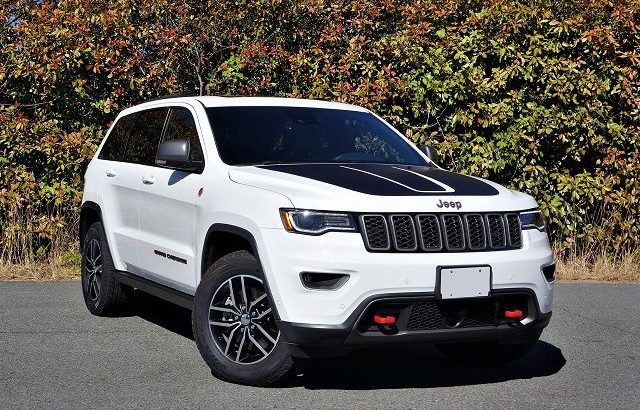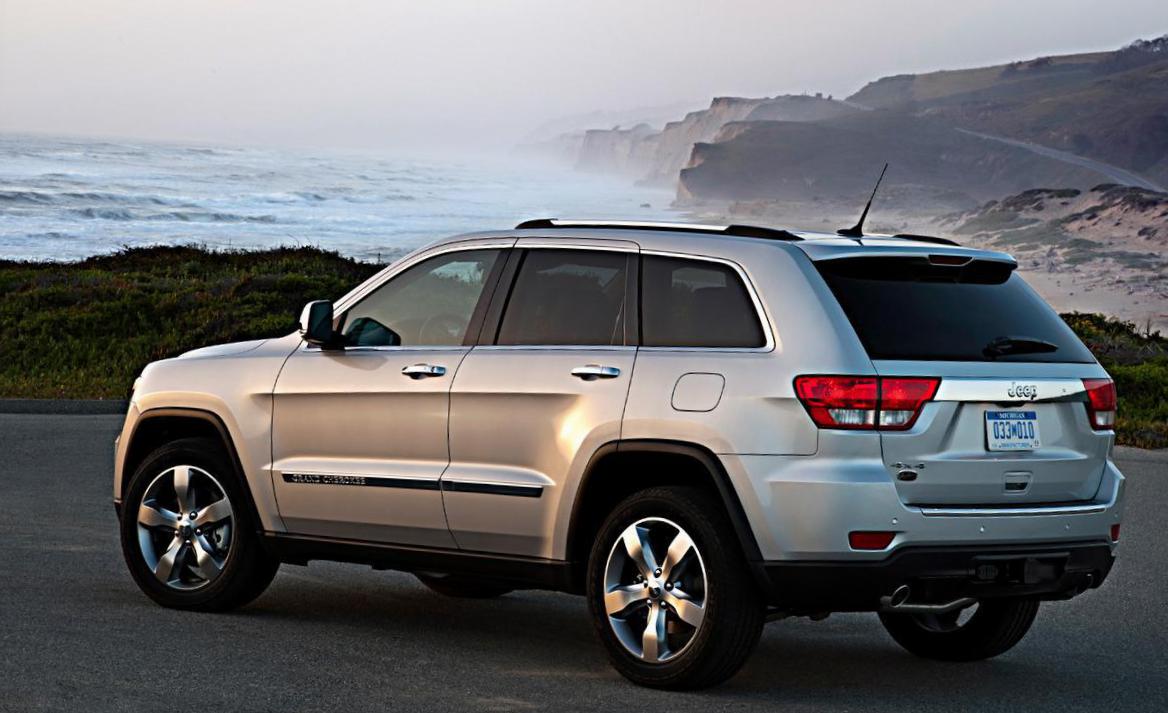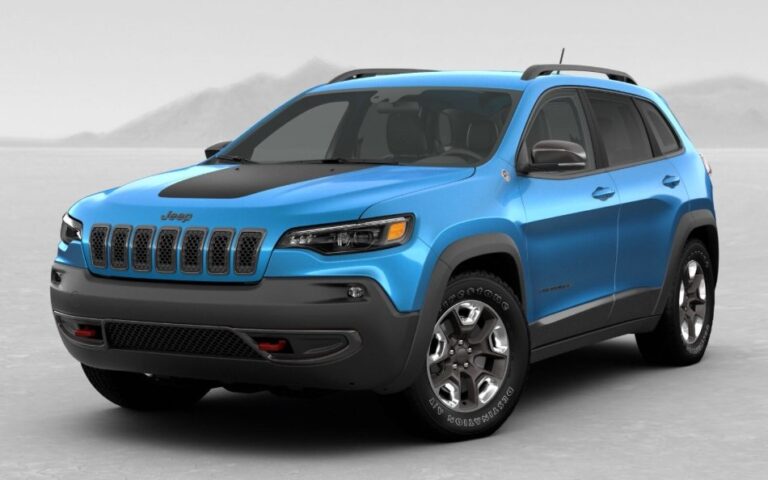How Much Is A Jeep Cherokee Lease? Your Comprehensive Guide
How Much Is A Jeep Cherokee Lease? Your Comprehensive Guide jeeps.truckstrend.com
The allure of a new Jeep Cherokee is undeniable: its blend of rugged capability, comfortable interior, and modern technology makes it a popular choice for families and adventurers alike. But for many, the question isn’t whether they want one, but rather, "How Much Is A Jeep Cherokee Lease?" Understanding the financial implications of leasing is crucial before committing, as lease payments can vary significantly based on a multitude of factors. This comprehensive guide will demystify the leasing process, break down the costs involved, and provide actionable insights to help you secure the best possible deal on your next Jeep Cherokee.
Unpacking the Fundamentals: What Exactly Influences a Jeep Cherokee Lease Cost?
How Much Is A Jeep Cherokee Lease? Your Comprehensive Guide
Before diving into specific numbers, it’s essential to grasp the core components that determine how much a Jeep Cherokee lease will cost you each month. A lease is essentially a long-term rental agreement where you pay for the depreciation of the vehicle over a set period, plus interest and fees. Unlike buying, you’re not paying for the entire vehicle’s value. This fundamental difference is why lease payments are typically lower than loan payments for the same vehicle.
Key terms you’ll encounter and their impact on your monthly payment include:
- MSRP (Manufacturer’s Suggested Retail Price) / Capitalized Cost: This is the starting price of the vehicle. However, just like buying, you can negotiate the selling price (also known as the "capitalized cost" in a lease). A lower negotiated capitalized cost directly translates to lower monthly payments, as it reduces the amount the vehicle is depreciating from.
- Residual Value: This is the estimated value of the vehicle at the end of the lease term. It’s expressed as a percentage of the MSRP. A higher residual value means the vehicle is projected to depreciate less, resulting in lower monthly payments for you. Jeep Cherokees typically hold their value reasonably well, which can be beneficial for leasing.
- Money Factor (Interest Rate): This is the financing charge on a lease, similar to an interest rate on a loan. It’s usually a very small decimal (e.g., 0.00200) that you can convert to an approximate annual percentage rate (APR) by multiplying by 2400. A lower money factor means less interest paid over the lease term. Your credit score significantly influences the money factor you’re offered.
- Lease Term: This is the duration of your lease agreement, commonly 24, 36, or 48 months. Shorter terms usually have higher monthly payments (as the depreciation is spread over fewer months) but lower overall interest paid. Longer terms offer lower monthly payments but accumulate more interest and typically lead to more wear and tear.
- Mileage Allowance: Leases come with a specified annual mileage limit (e.g., 10,000, 12,000, or 15,000 miles per year). Exceeding this limit will incur per-mile penalties (e.g., $0.20-$0.25 per mile) at the end of the lease. Choosing a higher mileage allowance will increase your monthly payment.
- Fees and Taxes: These include acquisition fees (charged by the leasing company for setting up the lease), documentation fees, registration fees, sales tax (which can be applied monthly or upfront depending on your state), and a disposition fee (charged at the end of the lease for processing the return).

Understanding these components is the first step in answering how much a Jeep Cherokee lease will cost and how you can influence that price.
Factors That Significantly Impact How Much Is A Jeep Cherokee Lease
The price of a Jeep Cherokee lease is not static; it’s a dynamic figure influenced by a variety of external and internal factors. Being aware of these can empower you during negotiations.

1. Trim Level and Options
The Jeep Cherokee comes in several trim levels, from the entry-level Latitude to the more luxurious Limited and the off-road capable Trailhawk. Each trim has a different MSRP, which directly impacts the capitalized cost and, consequently, your monthly payment. Adding optional packages, premium paint, or advanced safety features will also increase the overall lease cost. For example, how much a Jeep Cherokee lease will cost for a base Latitude will be significantly less than for a fully loaded Trailhawk.
2. Current Incentives and Promotions
Automakers and dealerships frequently offer special lease deals, rebates, or reduced money factors to move inventory. These promotions can drastically lower your monthly payment or reduce the "due at signing" amount. Always check Jeep’s official website and local dealership promotions before visiting. A particularly aggressive incentive can make how much a Jeep Cherokee lease costs surprisingly affordable.
3. Your Credit Score

Your creditworthiness is paramount. A higher credit score (typically 700+) qualifies you for the best money factor, reducing the interest portion of your payment. Conversely, a lower credit score will result in a higher money factor, making your lease more expensive. Lenders view excellent credit as less risky, offering more favorable terms.
4. Down Payment vs. Due at Signing
While a large down payment (capitalized cost reduction) can lower your monthly payment, it’s generally advised against in leasing. If the vehicle is totaled, you could lose that upfront money. Instead, focus on minimizing the "due at signing" amount, which typically includes the first month’s payment, acquisition fee, and various taxes/fees. How much a Jeep Cherokee lease costs upfront is as important as the monthly outlay.
5. Negotiation Skills
Even though it’s a lease, you can—and should—negotiate the capitalized cost as if you were buying the car. Every dollar you shave off the selling price translates directly to savings over the lease term. Negotiating a lower selling price is one of the most effective ways to reduce how much a Jeep Cherokee lease will cost. Don’t be afraid to shop around and get quotes from multiple dealerships.
6. Market Conditions
Supply and demand play a role. During times of high demand or low inventory, dealerships may be less willing to offer steep discounts. Conversely, at the end of a model year or during sales events, you might find more aggressive pricing.
Average Estimated Costs: How Much Is A Jeep Cherokee Lease?
Providing an exact figure for how much a Jeep Cherokee lease costs is challenging due to the many variables. However, we can offer estimated ranges based on common lease terms, mileage allowances, and trim levels. These figures assume good credit and may not include all state-specific taxes or fees, or current special promotions.
Assumptions for Table:
- Excellent Credit Score (Tier 1)
- 36-month lease term
- 12,000 miles/year allowance
- Minimal "Due at Signing" (first month’s payment, acquisition fee, doc fees)
| Jeep Cherokee Trim Level | Estimated MSRP Range | Estimated Monthly Payment Range | Estimated Due at Signing Range |
|---|---|---|---|
| Latitude (Base) | $30,000 – $32,000 | $320 – $380 | $2,500 – $3,000 |
| Latitude Plus | $33,000 – $35,000 | $350 – $410 | $2,600 – $3,200 |
| Altitude | $34,000 – $36,000 | $360 – $420 | $2,700 – $3,300 |
| Limited | $37,000 – $39,000 | $400 – $470 | $2,900 – $3,600 |
| Trailhawk | $38,000 – $40,000 | $420 – $490 | $3,000 – $3,800 |
| Overland | $41,000 – $43,000 | $450 – $530 | $3,200 – $4,000 |
Please Note: These are highly generalized estimates. Actual lease payments can vary significantly based on current incentives, dealer discounts, your specific credit score, chosen options, and regional taxes/fees. Always obtain a personalized quote.
Smart Strategies for Getting the Best Jeep Cherokee Lease Deal
Now that you know how much a Jeep Cherokee lease can cost, here’s how to ensure you’re getting the most competitive price:
- Research Current Incentives: Start your search on Jeep’s official website and local dealership sites. Look for advertised lease specials, which often highlight the lowest monthly payments for specific trims.
- Negotiate the Capitalized Cost: Treat the negotiation like you’re buying the car. Aim for a selling price (capitalized cost) below MSRP. This is the single biggest factor you can influence to lower your monthly payment.
- Shop Multiple Dealerships: Don’t settle for the first offer. Get lease quotes from at least three different dealerships and use them to leverage a better deal.
- Know Your Credit Score: Be aware of your credit score before you walk in. This will give you an idea of the money factor you should expect and prevent dealers from inflating it.
- Understand All Fees: Ask for a detailed breakdown of all fees. Some are non-negotiable (e.g., state registration), but others (like dealer documentation fees) might have some wiggle room or can be reduced by negotiating other aspects.
- Question the Money Factor: Ask the dealer for the money factor being used. If it seems high for your credit tier, inquire if they can offer a lower one.
- Consider Different Lease Terms and Mileage: Play with the numbers. A 24-month lease might have higher monthly payments but lower total cost over the term. A 10,000-mile allowance is cheaper than 15,000 miles if you don’t drive much.
- Avoid Large Down Payments: While it lowers monthly payments, it’s risky. If the car is totaled, you might lose that upfront cash. Focus on a low "due at signing" amount.
- Read the Fine Print: Before signing, thoroughly review the lease agreement. Understand the residual value, money factor, mileage allowance, early termination penalties, and end-of-lease options.
Navigating Challenges and End-of-Lease Options
Leasing a Jeep Cherokee comes with responsibilities. Understanding potential pitfalls can save you money and headaches.
- Excessive Wear and Tear: Leasing companies expect the vehicle to be returned in good condition, allowing for "normal wear and tear." Dings, significant scratches, torn upholstery, or unaddressed warning lights can result in charges at lease end. Consider purchasing a wear-and-tear waiver if available.
- Mileage Overages: Going over your agreed-upon mileage limit will incur penalties, often between $0.15 and $0.25 per mile. Accurately estimate your driving habits before signing.
- Early Termination: Breaking a lease early can be very costly, often requiring you to pay the remaining payments, penalties, and disposition fees. Only do this if absolutely necessary.
- Insurance Requirements: Lease agreements typically require higher levels of insurance coverage (e.g., higher liability, comprehensive, and collision with lower deductibles) than if you owned the vehicle outright. Factor this into your budget when calculating how much a Jeep Cherokee lease will cost overall.
At the end of your Jeep Cherokee lease, you generally have three options:
- Return the Vehicle: You simply turn in the keys, pay any excess mileage or wear-and-tear charges, and the disposition fee.
- Purchase the Vehicle: If you love your Jeep and its residual value is attractive (or market value is higher than residual), you can buy it out for the predetermined residual value plus any purchase option fees.
- Lease a New Jeep: Many lessees choose to trade in their current lease for a new one, often rolling over any positive equity (if the car’s market value exceeds its residual) or negative equity into the new lease.
Conclusion: Is a Jeep Cherokee Lease Right for You?
Understanding how much a Jeep Cherokee lease costs is the first step toward making an informed decision. Leasing offers compelling advantages for many drivers: lower monthly payments compared to buying, the ability to drive a new vehicle every few years with the latest features, and less hassle regarding trade-ins or selling a used car.
However, it’s not for everyone. If you drive excessive miles, tend to be hard on vehicles, or prefer to own your vehicles long-term without restrictions, purchasing might be a better fit. The key is to weigh the pros and cons against your lifestyle, budget, and driving habits. By doing your research, understanding the terminology, and being prepared to negotiate, you can secure a favorable lease deal that puts you behind the wheel of a fantastic Jeep Cherokee without breaking the bank.
Frequently Asked Questions (FAQ) about Jeep Cherokee Leases
Q1: Is a Jeep Cherokee a good car to lease?
A1: Yes, the Jeep Cherokee can be a good vehicle to lease, especially if it maintains a relatively strong residual value. Its popularity and brand recognition help in this regard. Leasing allows you to drive a new model every few years, benefiting from updated technology and safety features without the long-term commitment of ownership.
Q2: What credit score do I need to lease a Jeep Cherokee?
A2: While specific requirements vary by lender, generally, you’ll need a good to excellent credit score (typically 680-700+) to qualify for the most favorable lease terms and the lowest money factor. Scores below this may result in higher interest rates or require a larger down payment or a co-signer.
Q3: Can I negotiate the lease price of a Jeep Cherokee?
A3: Absolutely! You can and should negotiate the "capitalized cost" (the selling price of the vehicle) just as if you were purchasing it. A lower capitalized cost directly reduces your monthly lease payments. You can also try to negotiate the money factor, though this is often tied to your credit score.
Q4: What happens at the end of a Jeep Cherokee lease?
A4: At the end of your lease term, you typically have three options:
- Return the vehicle: Pay any outstanding fees (disposition fee, excess mileage, wear and tear) and walk away.
- Buy the vehicle: Purchase the Jeep Cherokee for its predetermined residual value, plus any purchase option fees.
- Lease a new vehicle: Trade in your current leased Jeep for a new one, potentially rolling over any positive equity into the new lease.
Q5: Are there hidden fees in a Jeep Cherokee lease?
A5: There aren’t typically "hidden" fees if you read the contract carefully, but there are several fees that can surprise new lessees. These include an acquisition fee (upfront), disposition fee (at lease end), documentation fees, and potential charges for excessive wear and tear or exceeding mileage limits. Always ask for a full breakdown of all fees.
Q6: Should I put money down on a Jeep Cherokee lease?
A6: Generally, it’s not recommended to put a large down payment (capitalized cost reduction) on a lease. While it lowers your monthly payment, if the vehicle is stolen or totaled, you could lose that upfront money. It’s often safer to pay the minimum "due at signing" (first month’s payment, acquisition fee, taxes, and registration) and keep your cash in a savings account.
Q7: What is the difference between residual value and money factor?
A7:
- Residual Value: This is the estimated value of the vehicle at the end of the lease term. It’s crucial because you pay for the difference between the capitalized cost and the residual value. A higher residual value means less depreciation, leading to lower monthly payments.
- Money Factor: This is the interest rate equivalent on a lease. It’s expressed as a small decimal (e.g., 0.00200) and represents the financing charge you pay over the lease term. A lower money factor means less interest paid.





